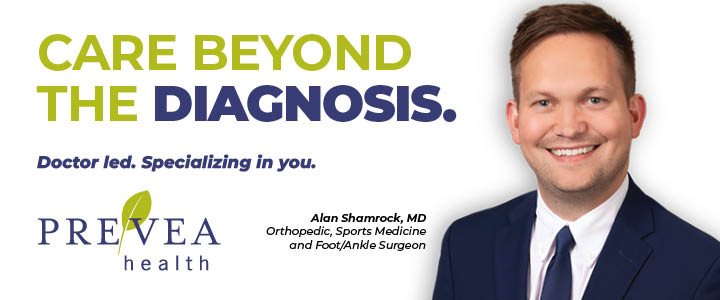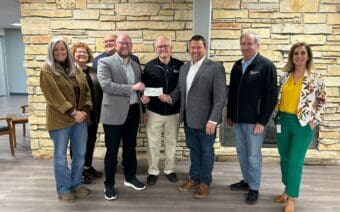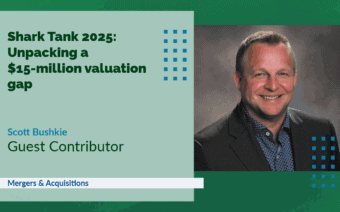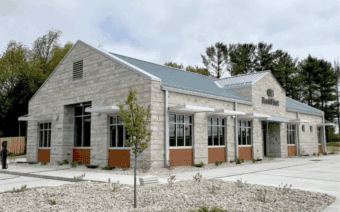
September 19, 2023
FOND DU LAC – There may never be an ideal time to take over the presidency of a four-year university, but for Michelle Majewski, it had some unique challenges.
Taking the reins just three weeks after the COVID pandemic shutdown in March 2020, Majewski described it as “the worst time to become a university president, and also the best time.”
Despite having been in various capacities at Marian for 32 years up to that point, Majewski said stepping into the role of president was a whole different thing.
Taking a proactive approach, Majewski said she interviewed CEOs from many different companies to find out what they needed in terms of an educated workforce right then and what they’d need in five years.
Those two questions, she said, garnered a lot of interesting and positive feedback.
“Marian University is nestled in the midst of multiple huge, multi-million dollar or billion dollar construction companies,” she said. “In conversation with some individuals in those companies, one of the things they said was they didn’t have enough people who can step in and become project managers and superintendents on jobs.”
Construction Management
According to the Associated General Contractors of America’s’ 2022 Workforce Survey, 81% of construction firms surveyed said the most difficult salaried positions to fill were project managers/supervisors – with the second being estimating personnel.
Armed with this information, Majewski said she put together an advisory board of either talent acquisition people or senior management personnel within some of the area’s major construction companies and asked them what they thought about Marian starting a construction management program.
“The level of support was overwhelming and extremely positive,” she said. “We then hired someone to work with the accrediting body, because this program will be accredited when the first class graduates in 2027.”
Majewski said the university wanted to make sure it had a curriculum that was appropriate, and that would meet the needs of employers.

Marian University has an enrollment of approximately 2,000 undergraduate and graduate students. Submitted Photo
“We had a phenomenal group that worked on this program and created the curriculum, and we launched our first group of students (with the start of the fall semester),” she said. “We had a minor program we launched last semester, but this is the first group of students (for the major).”
Marian hired Daniel Enz as the new program director and associate professor of Construction Management.
No stranger to the construction industry, Enz has worked as a senior engineer, a structural engineer, a consultant and an engineering officer in the U.S. Army and Army Reserves (stationed in Korea and Iraq).
Enz said the construction management program is definitely market-driven.
The U.S. Bureau of Labor Statistics estimates there will be an 8% job growth for construction managers from 2021-31 – a number higher than average when compared to other careers.
The bureau also said the 2021 median annual wage for construction managers was $98,890, and it will likely only go up from there.
A course description notes the objective of Marian’s Construction Management program is “to provide a well-rounded education that instills a deeper understanding of all facets of the construction field with a solid foundation of ethical principles.”
Enz said it will also focus on:
The development of leadership skills and the ability to work with many diverse teams.Being able to adapt to changing environments while keeping a project on time and on budget.Developing communication, critical thinking and problem-solving skills.
“Construction is basically horizontal and vertical,” Enz said. “Horizontal is roads, runways, bridges, pipelines, those kinds of things. Vertical construction is typically considered buildings of some sort.”
Enz said the university set up the curriculum to give students enough exposure to all types of construction, so they’re learning a little bit about a lot of things.
“They can take those basic skills and hopefully apply them to any of the many fascinating construction jobs that are available in a number of diverse fields,” he said.
Besides job security, an ever-changing environment and excellent pay, Enz said there’s a great deal of satisfaction in seeing a completed project you’ve been a part of.

Daniel Enz
“Being able to drive by and see something you put your heart and sweat into, and be able to see it for a lifetime, gives a person a tremendous amount of pride,” he said.
Enz said some of the students in the construction management program – about one-third of whom are women – are already working in the industry, either as paid or unpaid interns.
That, he said, is giving them valuable connections in the industry and a way of defraying some of their education costs.
“One of the biggest takeaways about this program is that there is a local school in (Northeast and Northcentral) Wisconsin that is probably the closest construction management program to them,” he said. “It allows students, if they don’t want to go away to college, to commute to school if they want and they can start to work in this field almost instantly,” Enz said. “There are a handful of our students who started in the spring who are already working in construction as they’re pursuing a construction management degree. I think that’s a great combination. They’re meeting the needs of their employers, plus they’re getting an education, and they have the ability to stay close to home when they graduate if they wish.”
Risk Management and Insurance
Another field wide open with plenty of job security is risk management and insurance – specifically property and casualty insurance.
Current statistics show about 25% of people in the insurance industry will be retired in about 10 years – and that within 15 years, a whopping 50% of people working in the property and casualty business will be retired.
In order to help address those future vacancies, Marian also launched a new Risk Management and Insurance degree program – just as it is doing with its construction management program.
Rick Parks, who recently retired as CEO from Society Insurance, a large property and casualty company based in Fond du Lac, is an adjunct professor of the new program.
“Companies in this area and around the country are going to begin to lose long-term, valued employees over the next coming years who have some meaningful roles in their organizations,” he said. “So, it’s a great time for a young person to get into the insurance industry as a professional.”
Majewski said the Risk Management and Insurance program was developed in much the same way the construction management program was – using information collected through conversations with many insurance company executives.
The university learned what the industry needs were, and then developed an advisory board comprised of people from some of the major insurance companies in the state to develop and guide the curriculum.
A career in risk management and insurance, Parks said, is recession-proof.
In all his years working in the industry, he said he never worried about not having a job.
“It’s also an industry that is extraordinarily stable,” he said. “The insurance companies operating in Wisconsin and in the Midwest are strong, long-term companies that are, in general, pretty successful and growing. The organization I just retired from had 20% growth in the last two years.”

Rick Parks
An insurance career, Parks said, also gives individuals the ability to help people by protecting them from financial ruin, saving businesses from economic devastation and helping communities recover from huge disasters.
“Young people today like doing something that makes a difference,” he said. “There are a lot of ways to go out in the world and make a difference, but one of the things that soaked into me over the years were the opportunities you have in insurance to make a profound difference in somebody’s life – whether that be putting them back in a home after a fire, helping an injured worker get the right kind of medical care, the right kind of rehabilitation and getting them back on the job, and those kinds of things.”
Parks said if people recognize a job helps others – “that rings true with a lot of young people today.”
“They have a great sense of having a purpose in what they do, and insurance is a great way to have a noble purpose,” he said.
Marian’s Risk Management and Insurance program, Parks said, is designed to help students identify, assess and mitigate risk effectively and prepare them for a pivotal role in a broad range of industries – whether within the insurance industry itself, the financial sector, healthcare, manufacturing, technology or even entertainment.
“Risk is prevalent in everything, especially in business settings, and being able to understand what the risks are and how risk can be accepted, mitigated or possibly eliminated is the focus of the overall program,” he said. “Along with determining what are the best tools to make those things happen.”
As with construction management, paid and unpaid internships are also available in the risk management and insurance field, with many of the companies who’ve helped develop these courses.
“Many times knowing someone at a company helps you get your foot in the door,” Majewski said. “When students do an internship, they then have connections with professionals in a company and many times those companies hire our interns. That social capital is huge.”
Well-rounded students
Majewski said the university strives to create cutting-edge programs with student-learning outcomes that match what employers are looking for.
“I think they’re well-rounded programs, and they’re complemented by the fact Marian University is an applied liberal arts institution,” she said.
With that in mind, Majewski said all Marian students complete 30 credits of a liberal arts core with courses in a variety of areas.

Michelle Majewski
?
“Those courses are designed to make sure they can engage in critical thinking, problem-solving, that they have effective written and oral communication and that they can work on a team where they can work well with others who are different from themselves,” she said. “Sometimes those are referred to as soft skills, but I think of them as power skills.”
Students at Marian, Majewski said, also take courses in theology, philosophy and ethics – which she said helps them develop values for how they approach and function in the world long after graduation.
Majewski said she has a deep passion for Marian University – not only for the institution but for its mission and core values.
“Everybody says they have core values, but I have to say we do try to live our core values and focus on community and how we treat each other, and how we look at service and social justice,” she said. “We want everyone to have a sense of belonging and that they fit into the culture of Marian University and that they are a valued member of the university community.”
 Altoona continues to make history as U.S. birthplace of Crokicurl
Altoona continues to make history as U.S. birthplace of Crokicurl 4imprint completes 170,000-square-foot expansion
4imprint completes 170,000-square-foot expansion








